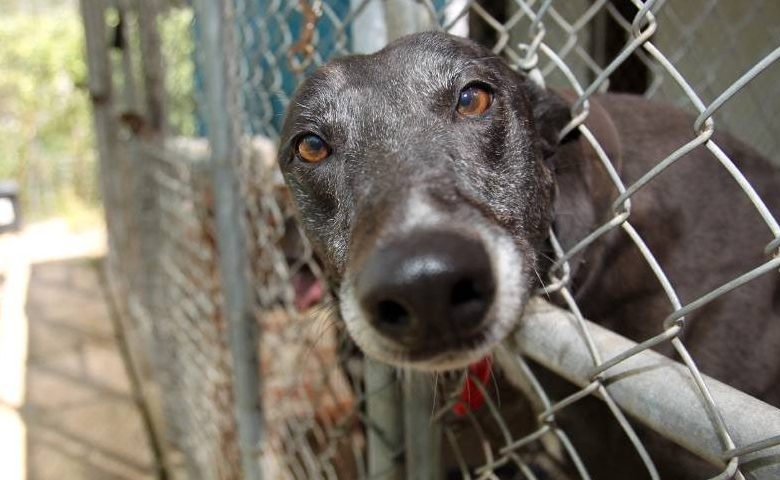Your new dog may never have lived in a house before. Everything will be new and strange. Imagine you have just landed from the moon and seen televisions, vacuum cleaners, glass doors and mirrors for the first time. Naturally, it will take your dog some time to settle down.
A rescue Greyhound may never have shared food. Every bit of food they have seen has been theirs. Alternatively, they may have learnt to fight for food if in a shared paddock. Some dogs can become very possessive/greedy about food. If this is not handled properly, aggression over food may develop, which can have sad repercussions for both owner and dog.
Please follow these rules to help your dog learn to be around food safely:
- When you are preparing food for yourself or the dog, if he tries to jump up and snatch it, always move your body firmly between him and the food to block his way. Do not look at him or say anything. That is confrontational.
- Always eat after he does or feed at the same time.
- Keep everyone in the family, especially children, well away while you are preparing his food and while he is eating.
- NEVER touch him or his food bowl while he is eating.
- Never make him ‘sit’ or ‘wait’ or do fancy tricks before he has his food. It means nothing to him but just increases his stress levels – and why would you want to do that?
- He is not a thief. He is a pack animal that is terrified that he will face starvation, particularly if he has faced it in the past. So if he takes food, do not be cross with him. Be cross with yourself for leaving it within reach. The same applies if he raids the bin.
- If he has got hold of something you do not want him to have, distract him with a treat while the item is removed from his reach. Avoid confrontation.
- Do not eat snacks down on his level, i.e. on the sofa. Sit at the table to eat until he really understands that your food is not for him, and block him from getting under the table by using chairs or your legs.
- Do not feed him treats from your own food or give him your plate to lick. We are trying to help him learn that your food is not his, and this will only confuse him.
- Do not let children wander around with food/sweets. This will make them vulnerable.
- If you have a toddler eating in a high chair, make sure all food spills are cleared up before you lift the toddler down.
- If you already have another dog, please be careful with treats in the early stages. It may pay to avoid them altogether initially.
- Remember that it may take him years to realise that there will always be food tomorrow. So make these rules a habit.
Some greyhounds coming out of racing may display these problems. They are kept at a minimum weight to race. Every piece of food in their kennel has been for them. So they have to learn that you are the person who makes decisions about what they eat and when they eat.
Most of this is common sense. Imagine how your behaviour would develop if you faced the constant threat of starvation or had to compete for food. Help your rescue dog to live happily for the rest of his life by following these simple rules.



